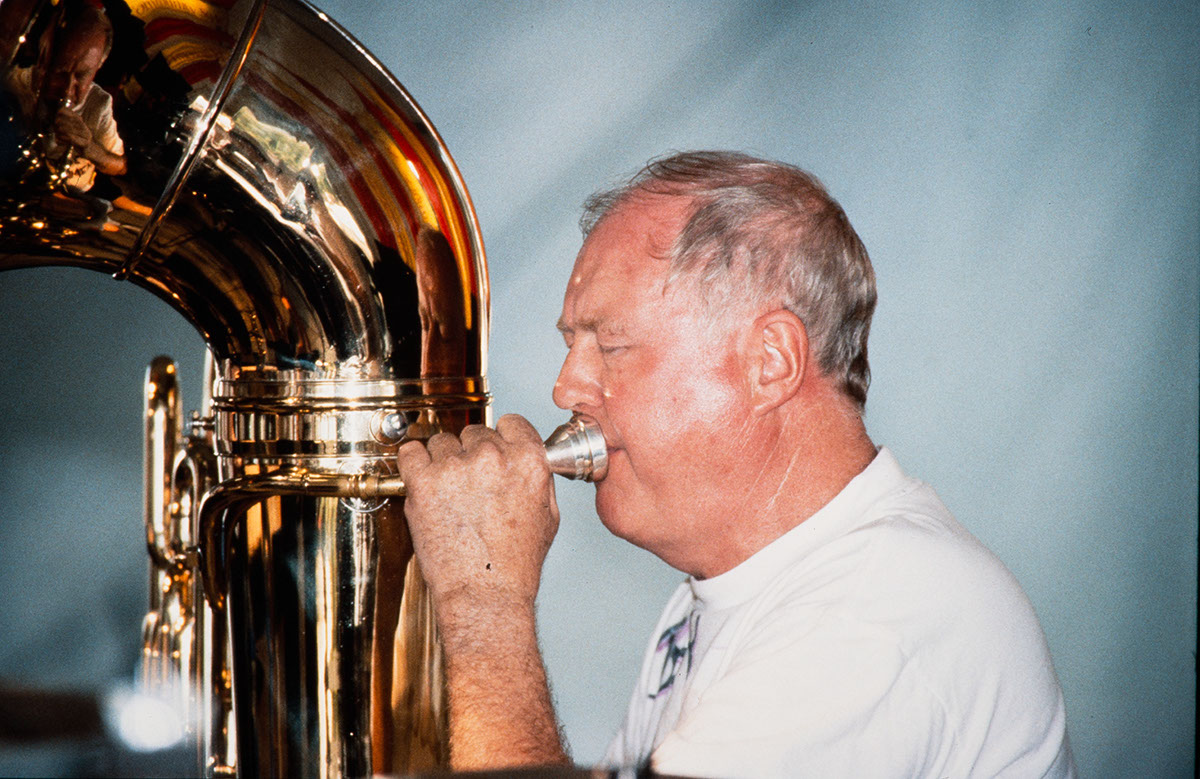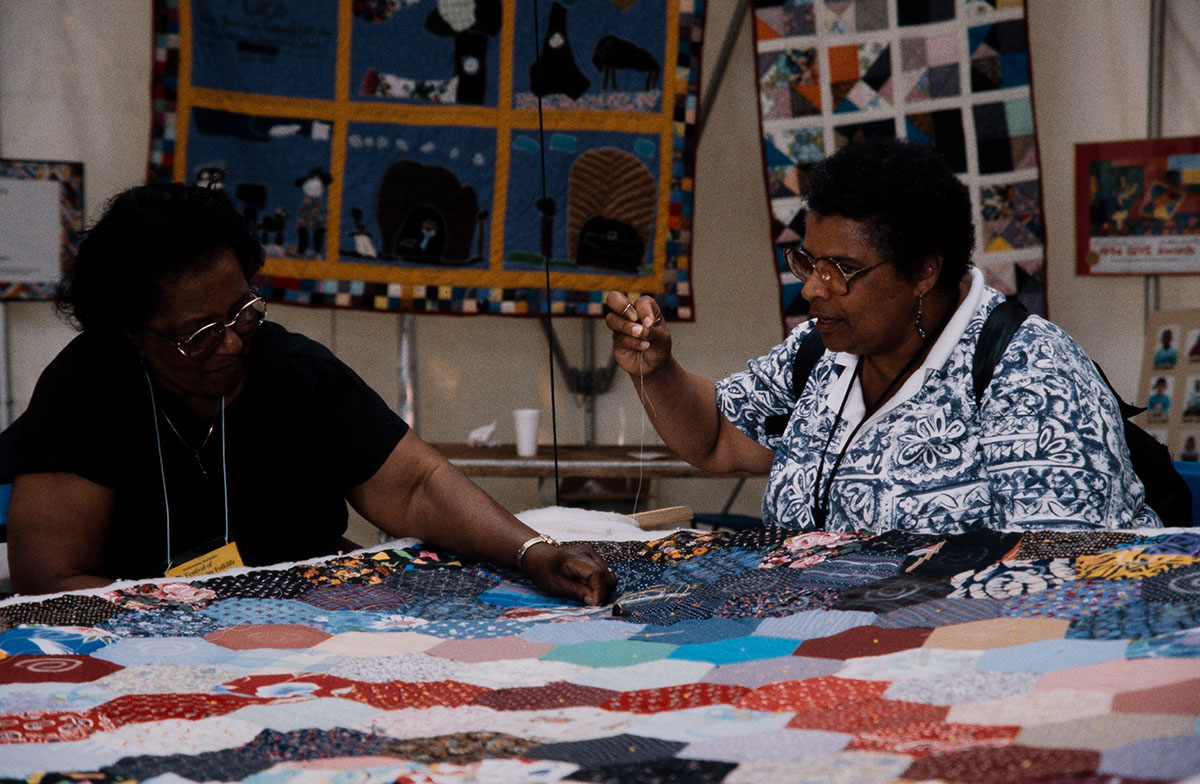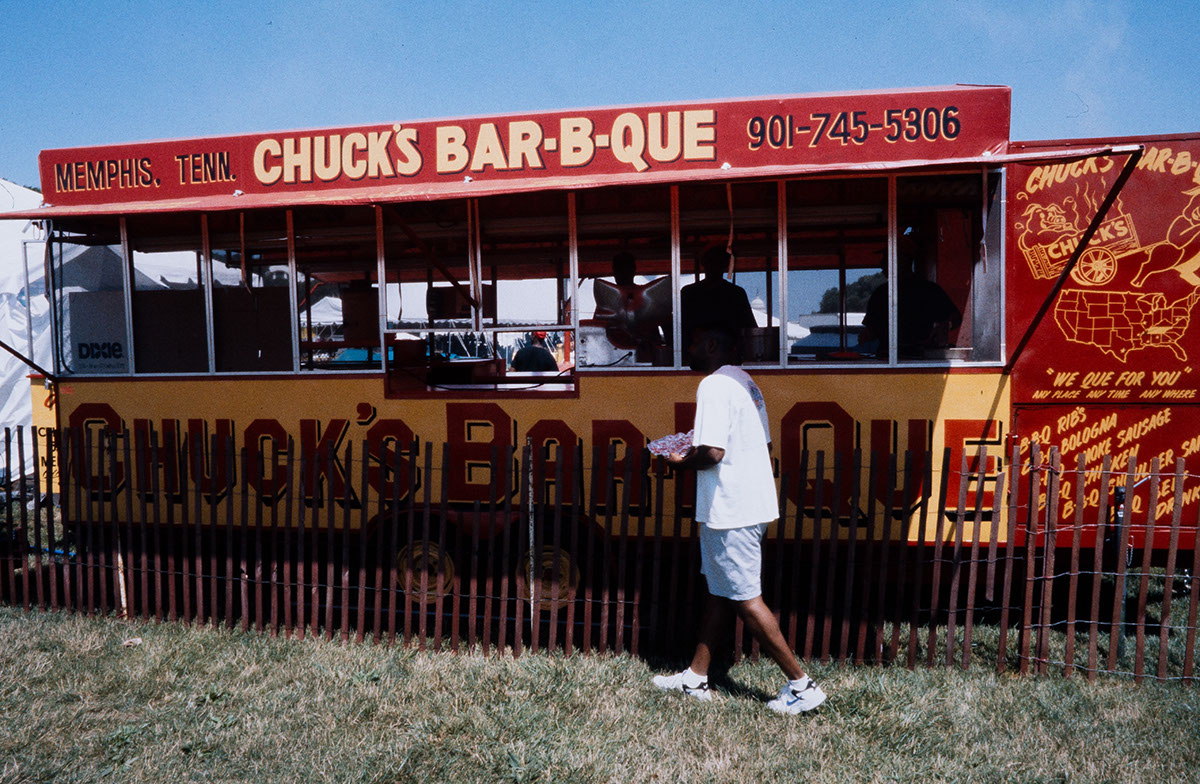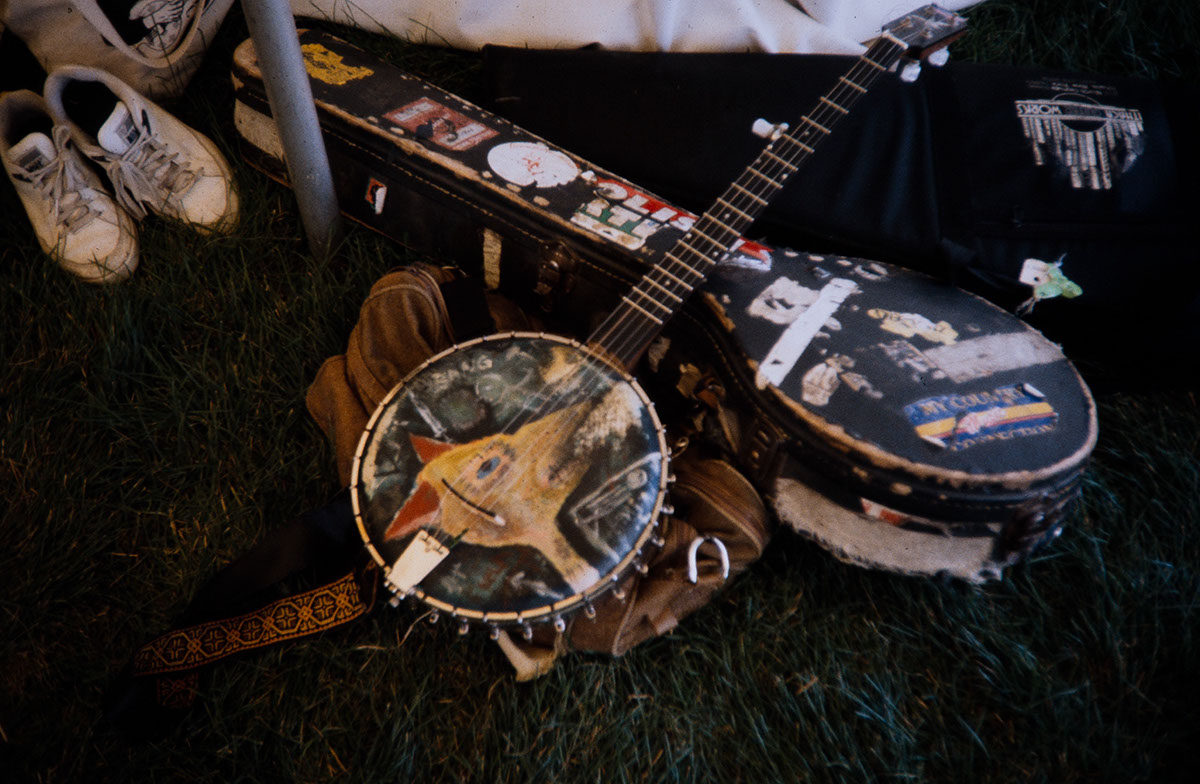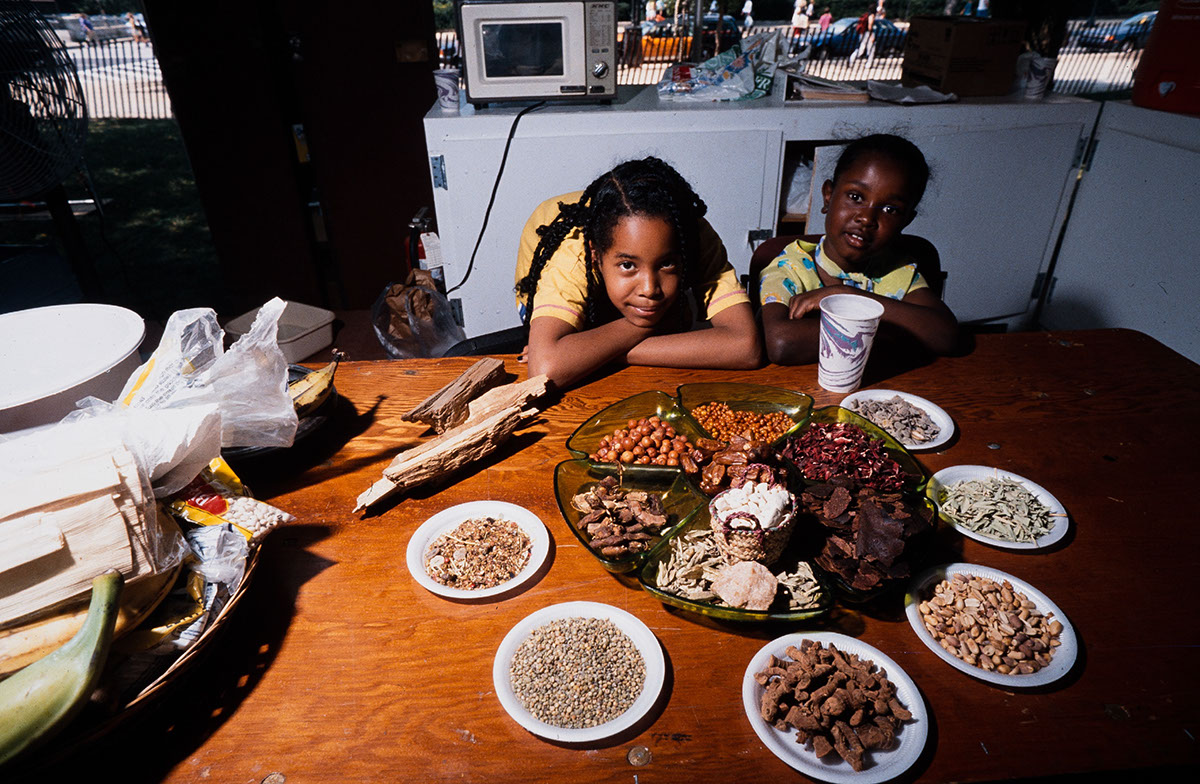The Olympic Games join athletes from across the globe in the highest levels of competition and excellence. The games have included, since their inception, a cultural component, but never before as extensively as in Atlanta in 1996. The Centennial Olympic Games brought together musical and dramatic performances, exhibitions, and artists from around the world. But most importantly, the Olympic Arts Festival highlighted the American South.
Southern culture was born from the interactions over past centuries of Native Americans, European settlers, and peoples from Africa. In the South, various forms of expression have arisen and transcended boundaries of race, gender, religion, and geography. So powerful have these expressions been - jazz, blues, gospel, rock 'n' roll, civil rights songs, Southern oratory, and food - that they have constituted unique American contributions to world culture. At the 1996 Festival on the National Mall, these forms of expressive culture were celebrated. Later the same summer in Atlanta during the Olympic Games, the program was the core of Southern Crossroads, a festival of Southern culture mounted in the new Centennial Olympic Park - the gathering spot for several hundred thousand visitors a day and billions more through television coverage. An Enhanced-CD Smithsonian Folkways recording with Internet connections and other educational material derived from the Festival program reached countless more after the Olympic Games.
The 1996 program not only exposed regional cultural roots but also showed how many of them have become part of traditions known to America and the world. Technology amplified the stories and songs of Southern rivers and roads, travails and struggles - as documenters recorded, disk jockeys broadcast, and performers toured these cultural expressions, helping them bridge race, gender, class, and ethnicity and producing forms of music now identified with American culture as a whole.
The world of Southern culture celebrated in the 1996 Festival was one of family, home, and community. The program explored new points of juncture and the evolution of new identities. In these could be discovered in today's South the roots of a new, evolving American culture.
Philippa Thompson Jackson was Program Curator and Phyllis K. Kimbrough was Program Coordinator. The American South was made possible by and was produced in collaboration with The Atlanta Committee for the Olympic Games Cultural Olympiad and in cooperation with the Southern Arts Federation. Additional support was provided by The Recording Industries Music Performance Trust Funds.


